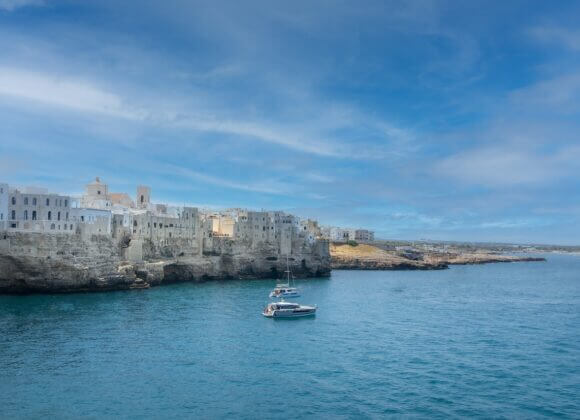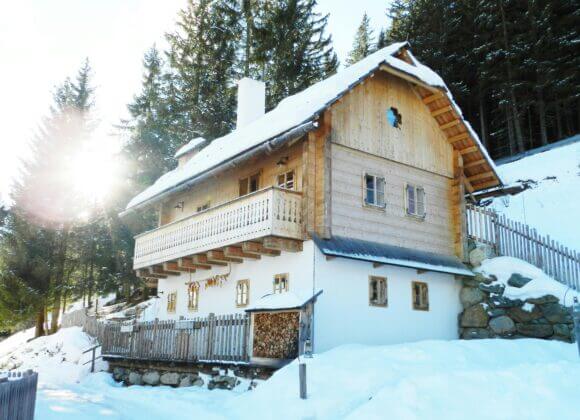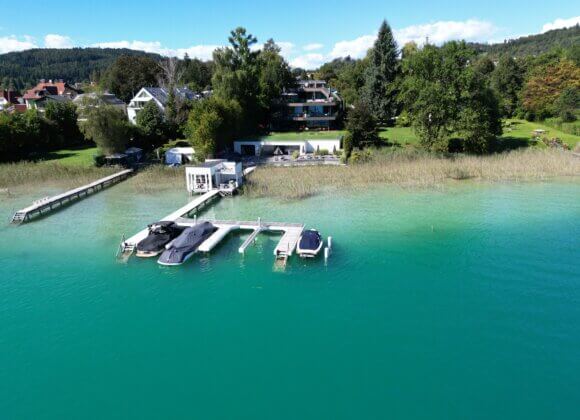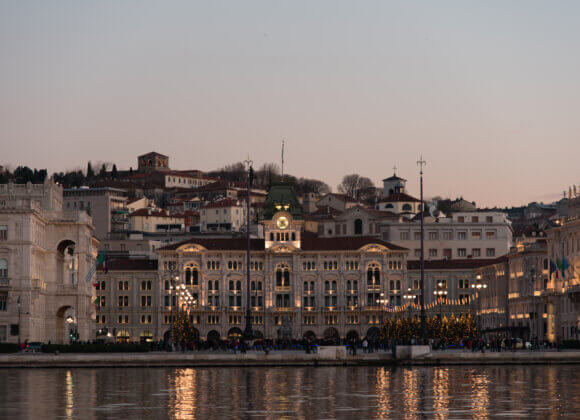Live where others vacation
To be able to enjoy sun, beach and sea not only for a short time in the hotel, but more often and longer, is the dream of many. Some of them make it a reality with a second home in the south – Croatia, Italy (Ligurian Coast, Tuscany, Venice), France (Nice, Cannes), Spain (Mallorca, Marbella, Ibiza) and the Greek islands are particularly popular. We provide an overview of what you need to consider when buying a vacation property, among other things.
In principle, EU citizens can purchase real estate in the member states without any problems, yet there are some differences compared to Austria. For example, an up-to-date land register according to the Austrian model does not exist everywhere, which is why, if necessary, the ownership situation should be checked with the court by a lawyer before the purchase. Incidentally, the same applies to development plans and the like. Unlike in this country, notaries also do not necessarily act as trustees, which leads to a certain degree of uncertainty with regard to the purchase price and registration of ownership. Before the purchase of an apartment or a house in the south is put into practice, one should inform oneself thus exactly and get locally support by respectable brokers, legal experts and if necessary translators – finally from the dream of the second domicile in the sunny south no nightmare is to become.
Italy
In Italy, a legally binding preliminary contract is usually concluded, and a down payment of up to 30 percent of the purchase price is due at the same time. If the purchaser makes use of any right of withdrawal agreed therein, he shall not receive the down payment back. Following the preliminary contract, a purchase agreement is concluded, which is accompanied by the official change of ownership and is entered in the property register. Incidentally, this purchase contract must include a mandatory declaration by the seller that the property is free of tax debts – and it must be notarized by an Italian notary.
If the purchase is handled by a real estate agent, a broker’s commission of two to four percent of the purchase price becomes due after the preliminary contract has been concluded. In addition, there are notary fees, which amount to up to 2.5 percent of the purchase contract, as well as various taxes, such as land transfer tax, and various fees. Their amount depends, among other things, on whether it is a primary or secondary residence, but the property designation is also an influencing factor. A general statement can therefore not be made. Furthermore, as a buyer of real estate in Italy – regardless of whether you establish a residence in Italy yourself – you need a tax number. This is already required for the land register execution of the contract and can be applied for at any tax office in Italy.
Croatia
EU citizens can also purchase real estate in Croatia without any problems, provided they can show a Croatian tax number. However, there are some exceptions: Agricultural and forestry land and nature reserves may not be purchased. Usually, a preliminary contract is concluded and a deposit is agreed. If the buyer withdraws from the preliminary contract, he loses the deposit. However, if the seller withdraws, he must transfer twice the deposit as compensation to the person interested in buying. Before both parties finally sign the purchase agreement in front of a notary, the notary must certify the purchase agreement.
After the contract is signed, the rest of the purchase agreement is due and the property is handed over. This is followed by registration in the land register – a title deed should be applied for as security. In addition to the purchase price, the following additional costs are incurred: The land transfer tax amounting to three percent of the purchase price, if applicable the broker’s commission (usually three to 3.75 percent) as well as the costs for the notary, the entry in the land register and possibly costs for a lawyer and translator.
Greece
In principle, EU citizens can also purchase real estate in Greece without any problems. However, the Greek border areas with Turkey, which include the island of Samos, for example, are an exception. In these areas, foreigners are prohibited from buying land – unless they already live and work in Greece. In this case, the EU citizen may apply to a committee in the respective administrative district to have the acquisition ban lifted.
As a general rule, once the desired property has been found, the purchase contract is negotiated. In view of the complex legal situation, it is advisable to consult an expert lawyer. The latter also takes care of the land register search and the entry in the land register, which finally completes the transfer of ownership. If a down payment is required, which is usually the case, a preliminary contract should be concluded with a notary.
As is the case everywhere, incidental costs are incurred in addition to the purchase price: The land transfer tax amounts to around three percent of the purchase price, plus the municipal tax amounting to three percent of the applicable land transfer tax. In the case of new buildings purchased directly from a developer, property tax is omitted; instead, a value-added tax of 24 percent of the purchase price must be paid. Not to forget, if applicable, the fees for real estate agent, lawyer, notary, translator as well as transcription costs for cadastre and land register.
Spain
There are no restrictions for buying real estate in Spain. However, buyers of a vacation apartment or a house need a Spanish tax number. The so-called NIE can be applied for at the aliens department of the police station responsible for the respective region. Once the buyer and seller have agreed on the terms of the contract, this already constitutes a valid preliminary contract, with which a down payment of around ten percent of the agreed purchase price becomes due. Although private contracts are equally binding in Spain, it is still advisable to consult a lawyer for the purchase contract. Once the contract is signed, the next step is to sign the purchase deed in front of a notary. With this, the sale is notarized, ownership is secured at the land registry and the remainder of the purchase amount is due.
The additional ancillary costs incurred are approximately eleven percent of the purchase price. This includes value-added tax, which is payable on new buildings and amounts to ten percent, land transfer tax (usually eight to ten percent of the purchase price), stamp duty, and fees for tax number, land registration, notary, and possibly lawyer. If a translator is used, these costs must also be included.
France
As in other EU countries, residents of member states are free to purchase real estate in France without restrictions. Once the right property has been found, the offer is followed by the binding preliminary contract. It includes all agreements that will later also be part of the purchase contract, as well as a down payment of a maximum of ten percent of the purchase price and a revocation period of ten days. However, both the buyer and the seller may withdraw from the preliminary contract even after the withdrawal period has expired. In this case, a clause is usually agreed upon that provides for a compensation sum to be paid to the other party. However, if a penalty clause was included in the preliminary contract and the buyer withdraws, the seller may keep the deposit already made.
Once the main contract is signed, the buyer becomes the owner of the property. The land register entry following the signing and the transfer of the purchase price is a mere formality. By the way: The main contract, in contrast to the preliminary contract, must always be notarized. Speaking of notaries: In France, both buyers and sellers can consult a notary. In addition to brokers and agents, the latter can also act as an intermediary for real estate. And of course, fees are also due in France: those of the notary amount to approximately one percent of the purchase price, plus the land acquisition and cadastral taxes. In total, between seven and eight percent of the purchase price for used properties and two to three percent of the purchase price for new properties should be budgeted for incidental expenses. Stamp duties are also due.
By the way, the purchase of new real estate is subject to VAT in the amount of 20 percent. However, this is often already included in the purchase price. The housing tax, on the other hand, has an expiration date – it is to be abolished in 2023. Previously, it had to be paid annually by the person who occupied the property on January 1 of a calendar year. The calculation of the residential tax for vacation homes is made according to the cadastral value of the house, plus a surcharge of 1.5 percent by the French government. Depending on the municipality in which the secondary residence is located, a specific surcharge of five percent to 60 percent is added. Also payable annually is the property tax on buildings, land and property. The amount of this tax can vary from department to department, and even from municipality to municipality.
Topic right of residence
Once the purchase is finally signed and sealed, there are still a few things to consider: EU citizens can stay in another member state for three months without applying for a residence document there. After that, if necessary, the residence must be registered with the competent authority and a certificate of registration must be applied for. Those who stay at their second home for several months should also find out about tax and social security regulations. People who receive a pension in Austria must report stays abroad of two months or more to the pension insurance institution.
The topic of inheritance law should also be considered: According to the EU Inheritance Law Regulation, which has been in force since 2015, the citizenship of the deceased is no longer relevant for inheritance. Rather, the last habitual residence of the deceased is decisive for the question of competent courts and applicable law. Therefore, if you are an Austrian whose center of life is not in the Alpine Republic but in another EU country, you should definitely determine which law should apply in the event of death. This is because there are serious differences from domestic inheritance law depending on the state.
Landlust: Luxury real estate in the countryside
Urban: Luxury properties Vienna Urban
Villa location: Luxury properties Villa location
For ski fans: Luxurious living for ski fans
On the waterfront: luxurious living on the waterfront
Hotel service: Luxurious living with hotel service
Exquisite view: Luxurious living with an exquisite view
For golf fans: Luxurious living for golf fans
Classic elegance: Luxurious living in classic elegance













